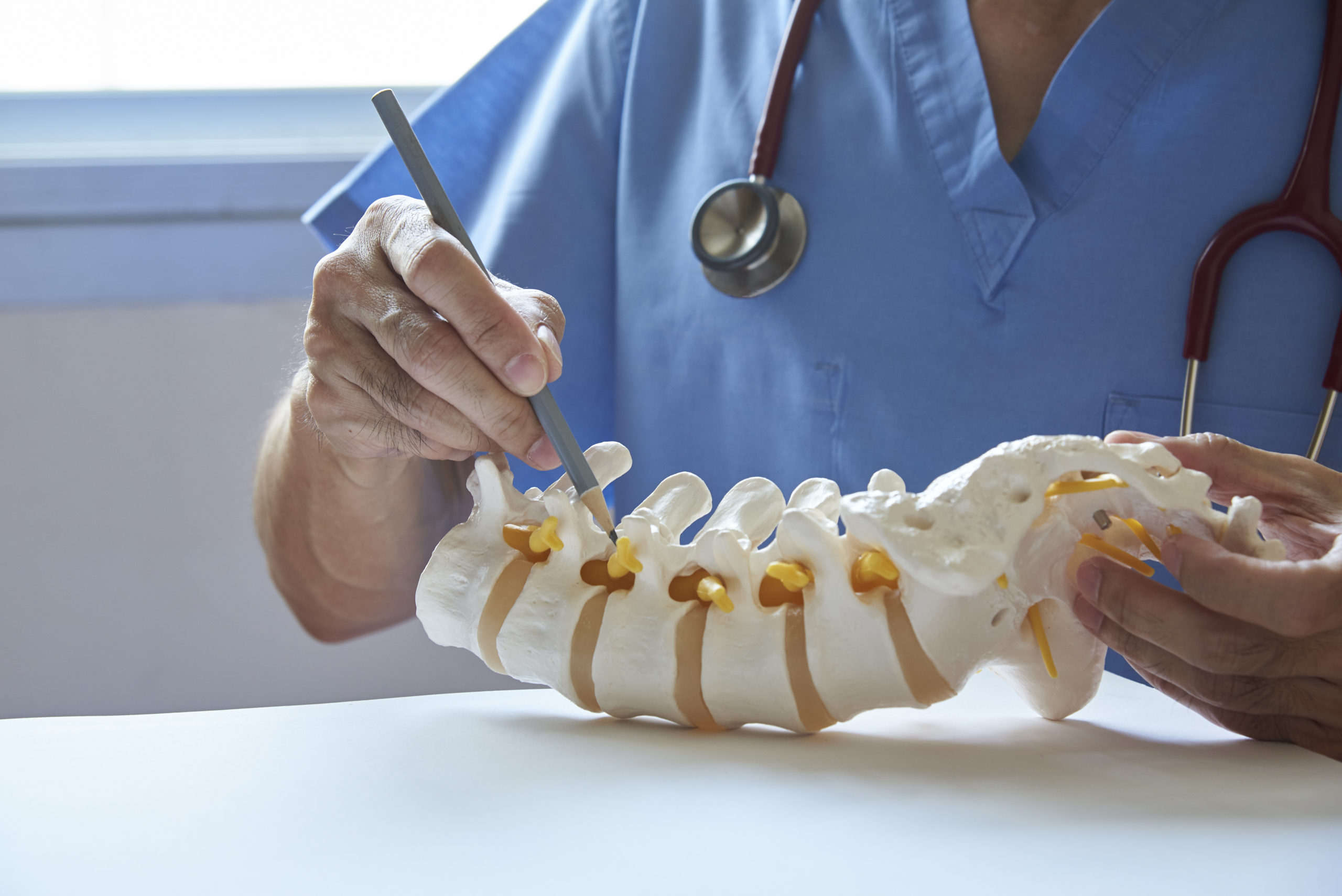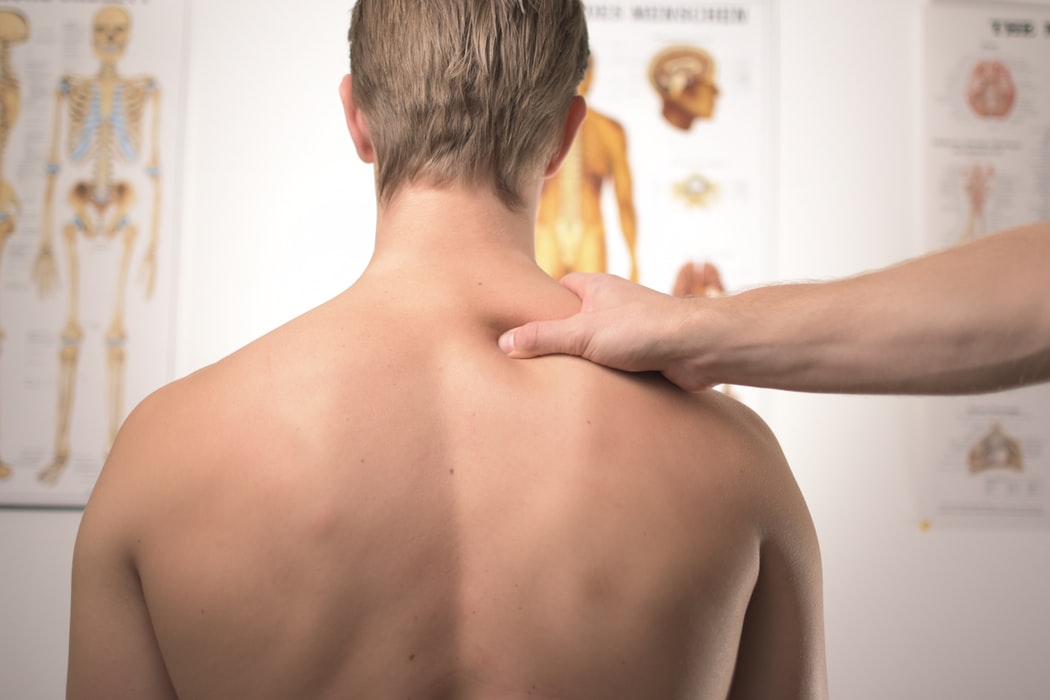What Are The Multiple Causes Of Bulging Disc
When the nucleus moves to press on the disc’s outer ring, the disc flattens and protrudes into the spinal canal, resulting in a bulging disc. The most frequent reason for a bulging disc is the wear and strain on the spine that comes with ageing. Spinal discs can also be harmed by a violent accident like a vehicle accident or sports injury.
Do you have a bulging disc? If so, there are some things that you should know about it. You may not have heard of this condition before or thought that it is something that only happens to old people. But you’ll learn here how you can treat the pain and heal your bulging discs permanently at https://drtonymork.com/back-pain/disc-herniation/bulging-disc-symptoms-causes-treatments-options/ if you do have one.
What Is A Bulging Disc?
A bulging disc is a type of herniated disc. This means that the protective cartilage between two adjacent vertebrae (bones) has been displaced out of position. As a result, there is an abnormal protrusion of the disc from the spinal canal. It’s important to understand that a herniated disc is not a “ruptured” disc. Your spinal cord remains intact in both cases.
There are several types of bulging discs, including lumbar, cervical, thoracic, and sacral. While most disc problems occur at the L4-L5 level, the L3-L4 and L2-L3 levels also commonly experience this problem because these areas have less support than other areas.
Causes Of A Bulging Disc
The main causes of a bulging disc include:
- Injury
- Hormonal changes
- Genetics
- Ageing

Injury is perhaps the most common cause of a herniated disc. In fact, almost 90% of all bulging disc cases involve injury. Other causes include:
- Rheumatoid arthritis
- Osteoporosis
- Spinal stenosis
- Car accident
- Workplace accidents
Hormonal Changes
Another important factor to consider when dealing with bulging discs is hormonal changes. Women who are pregnant or trying to get pregnant often suffer from a bulging disc. Menopausal women can also be affected by a bulging disc.
Genetics
Some individuals inherit a predisposition for having a bulging disc. Others don’t. Some experts estimate that genetics account for around 50% of all cases of bulging discs.
Ageing
As we age, our ligaments become more lax and lose their strength. This makes us more susceptible to injuries like sprains and strains. Also, as we age, our discs begin to degenerate. Degeneration is the loss of water content within the disc. As a result, its shape becomes more irregular. All of this puts us at greater risk of developing a bulging disc.
Symptoms Of A Bulging Disc
It’s important to note that symptoms of a bulging disc tend to vary on a person-to-person basis. There are many different kinds of symptoms that people may experience. Here are just a few examples:
- Numbness or tingling down the leg.
- Weakness in the leg.
- Severe backache.
- Difficulty walking or using stairs.
Although many symptoms are similar to those associated with sciatica, they actually represent different conditions. Sciatica is much more severe than a bulging disc.
How To Treat A Bulging Disc
If you suspect that you have a bulging disc, see your doctor immediately. Your doctor will need to perform a physical exam and MRI scan to determine whether you might have a bulging disc. Once a diagnosis is made, your doctor will recommend treatment.
Here’s what you can expect:
- Medication.
- Physical therapy.
- Surgery.
Most people can recover fully from a bulging disc without surgery. However, surgery is sometimes necessary. Your doctor will make a recommendation based on your medical history and his/her findings during the examination.
Medications For A Bulging Disc
Your doctor may prescribe pain medication. Sometimes, he/she may also suggest taking anti-inflammatory medications such as Ibuprofen. These medicines help reduce inflammation and relieve pain.
Physical Therapy
In addition to medication, your doctor may recommend physical therapy. You’ll find that regular exercise and proper postural alignment are very effective in treating bulging discs.

Surgery
For some people, a bulging disc doesn’t respond well to conservative treatment. In these instances, your doctor may recommend surgery. Surgery for a bulging disc involves removing part of the disc tissue and putting it back into place. This helps restore the disc’s original function.
However, there are risks involved with surgery. The potential complications include:
- Infection.
- Blood clots.
- Scarring.
- Persistent pain.
- Permanent disability.
- Paralysis.
While surgery offers the best chance of recovery, it isn’t always the right option. Therefore, you’ll want to discuss all options with your doctor before deciding which treatment plan is right for you.
Rehabilitation Process After Surgery
After surgery, your rehabilitation process begins. During this period, your doctor will give you specific instructions regarding your exercises and activities.
You’ll also receive detailed instructions regarding your diet and how to manage any possible complications.
Once you start feeling better after surgery, you can gradually increase your activity level. You’ll want to continue your exercises until you’ve achieved full recovery.
Alternative Treatment Options
There are also alternative treatments available for bulging discs. One popular option is acupuncture. Acupuncture involves inserting extremely thin needles into various points along the body. The patient then holds still while the practitioner stimulates the needles.
This procedure is said to help alleviate pain and improve circulation.
Other alternative treatments include chiropractic care and massage therapy.
Conclusion
Now you know more about the causes, symptoms, and treatment options for bulging discs. Although this condition is relatively rare, millions of people deal with it every day. Hopefully, this article helped you gain a better understanding of this condition.
Learn everything you need to know about the treatment options for a bulging disc, including home remedies, alternative treatments, and more…
